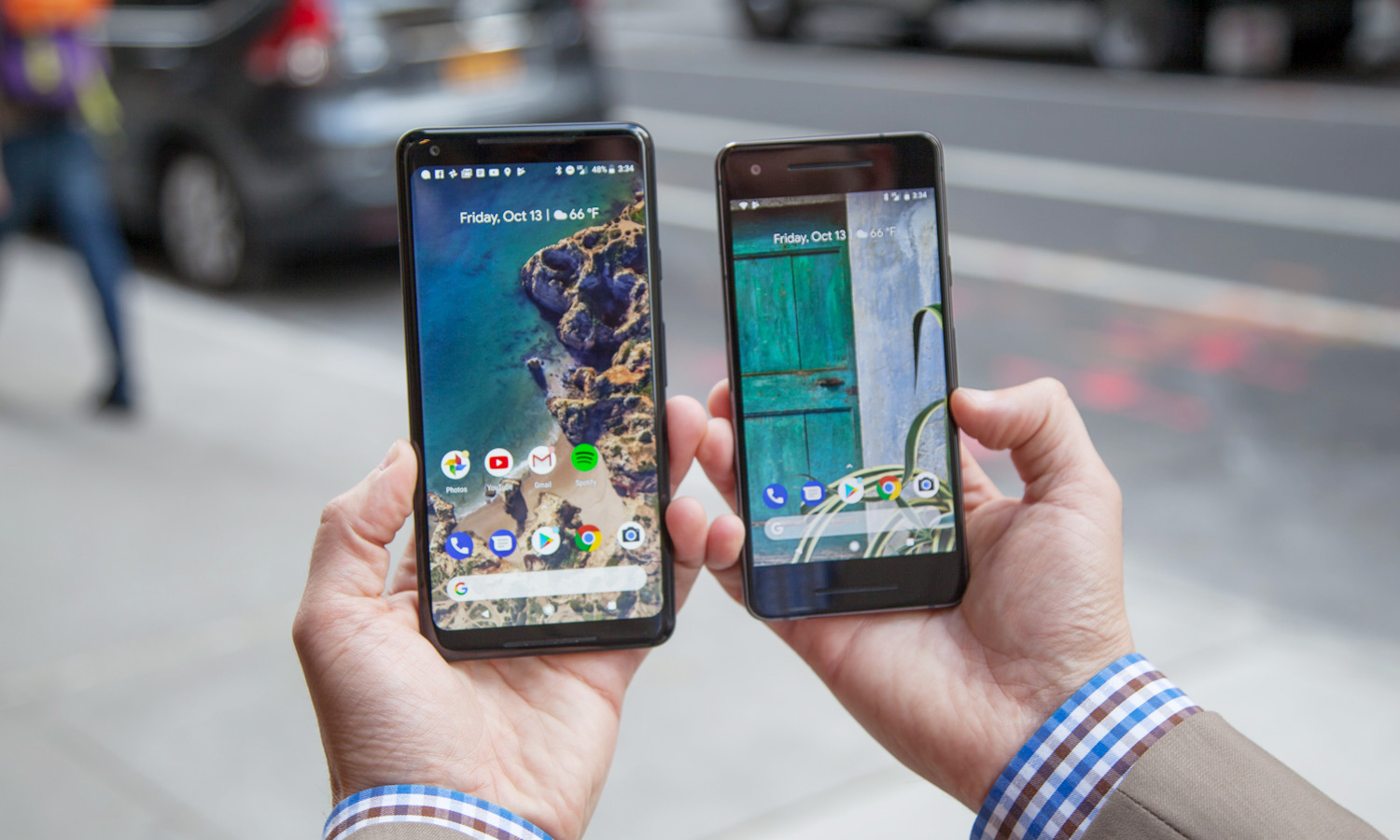Google Caught Overcharging for Pixel 2: How to Get a Refund
Google was charging customers extra at its pop-up stores, but it promises to address the issue.
Google has some egg on its face today, after it was discovered to be overcharging on its Pixel 2 smartphones.

At least one of Google's New York City pop-up stores overcharged customers by $30 for the Pixel 2 and Pixel 2 XL, according to a report from The Verge. So rather than a $649 starting price, Google was charging customers $680 on the Pixel 2, and the 64GB Pixel 2 XL was going for $880.
Google announced the Pixel 2 and Pixel 2 XL handsets earlier this month and released the handsets on Thursday. While the devices have the correct listing price online and in Verizon stores, the pop-up store in question had it all wrong.
In a statement to The Verge responding to the problem, Google said that it will reimburse all customers affected by the overcharge. A company spokesperson apologized for the problem and said that it "was an error, which is now fixed."
"We'll be reaching out shortly to reimburse those impacted," the spokesperson said.
MORE: 9 Reasons to Buy the Google Pixel 2 (and 4 Reasons to Skip)
To be clear, it doesn't appear that the people handling transactions at the pop-up store are actual Google employees. Instead, The Verge believes it was operated by employees at a Verizon reseller that handled the process of customers buying the devices and getting them up and running on Verizon's network.
Get instant access to breaking news, the hottest reviews, great deals and helpful tips.
Interestingly, the reseller, called Victra, also lists the Pixel 2 on its website. Its pricing there is similarly $30 over the regular retail price. However, if you mention to its staff that prices are lower elsewhere, Victra would price match.
Now, though, it appears the problem has been solved and Google is moving forward with the stores as a way to attract shoppers who want to try out its handsets first.
Don Reisinger is CEO and founder of D2 Tech Agency. A communications strategist, consultant, and copywriter, Don has also written for many leading technology and business publications including CNET, Fortune Magazine, The New York Times, Forbes, Computerworld, Digital Trends, TechCrunch and Slashgear. He has also written for Tom's Guide for many years, contributing hundreds of articles on everything from phones to games to streaming and smart home.
-
andrew.schloemer "To be clear" your headline is a bold faced lie and you know it. Victra was overcharging and Google offered to reimburse people out of their own pocket? The only egg on anyone's face should be yours. Those who can't write articles worth reading write clickbait. Quickly losing respect for Tom's after articles like this.Reply -
mojoeherb Some of there articles are even showing some signs of bias towards Apple & Samsung. This why I take their article with a grain of salt; it ain't all that trustworthy. They need to step up on right unbias articles of just get deh steppingReply -
dylankarzen I agree with the previous comments. Google is clearly not trying to make $30 extra profit on these phones, the resellers are. The headline is deceptive.Reply -
aland.tinsley1 Interesting, people commenting on this article reminded me about a youtube video from AdoredTV where he suspects Tom's Hardware to be biased towards Intel products as well. Now I've known about their website and read a few articles over the years it's only recently their bias has been so obvious. Darker times are afoot I expect so everything must be taken with a grain of salt. This article included since it was the mom and pop retailer over charging not Google directly. Google is a little shady in a whole lot of things lately but this one goes in Googles favor.Reply -
jeffofficedesktop The Verizon corporate stores add a $30.00 upgrade fee. This is itemized on the invoice. So Victra,Reply
as stated on their website "Victra is the leading exclusive premium retailer for Verizon", is probably following suite. But then they got caught, because it isn't an upgrade if Victra didn't sell to the customer before. So, "Ooops, we're sorry, shouldn't have happened that we were caught". Don't forget, Verizon is as Verizon does.
 Club Benefits
Club Benefits





